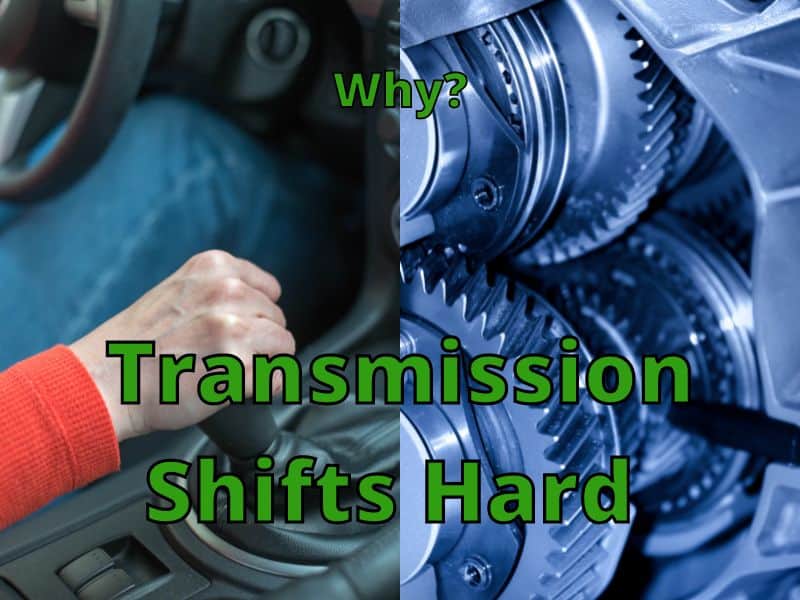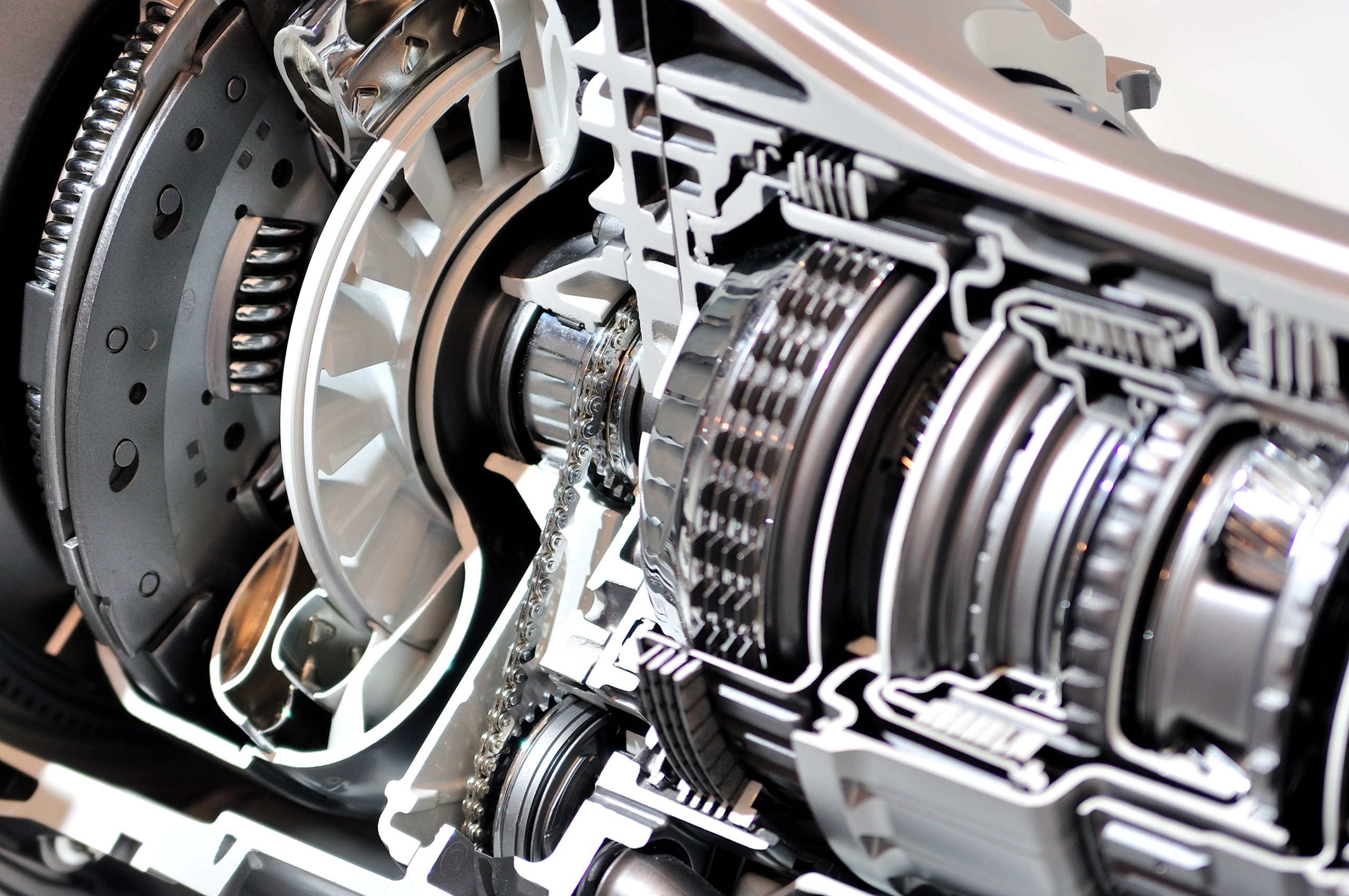Transmission shifting hard can be caused by a number of different things. One major factor is the transmission fluid level being low or dirty, as this can cause the clutch plates inside the transmission to slip and result in hard shifts. Another common reason for hard shifts is worn bands, solenoids, or clutches inside the transmission that need to be replaced.
Worn out internal parts cause friction between components which leads to harder than normal shifting. It’s also possible that something is wrong with your vehicle’s computer system, such as faulty sensors sending incorrect information to it which causes poor shift timing and abrupt gear changes resulting in a harsh shift. If any of these issues are present then it’s best to take your car into a qualified repair shop as soon as possible so they can diagnose and fix the problem before further damage occurs.
Many drivers experience transmission shift hard when their vehicle shifts from one gear to the next, or when putting it into drive. This can be caused by a number of different things such as low fluid levels, worn out parts and even issues with the computer system that controls the transmission. It is important to have an experienced technician take a look at your vehicle and diagnose the cause in order to prevent further damage that could end up costing you more money down the road.
HOW TO FIX AUTOMATIC TRANSMISSION THAT SHIFTS HARD OR SLIPPING
What Causes a Hard Shift in a Transmission?
A hard shift in a transmission is generally caused by worn or failing components inside the transmission, such as clutches, bands, seals, and gaskets. If these parts are not replaced on time or if they become overly worn due to normal wear-and-tear over time, then it can cause a hard shift when you move the gear selector from one gear to another. This could be due to low levels of transmission fluid – although this typically results in soft shifts – but it could also be an indication of something more serious being wrong with your vehicle’s internal workings.
Other causes for a hard shift include improper installation of aftermarket performance modifications that lead to mismatched transmissions components; incorrect adjustment of the shifting linkage; binding valves; broken synchronizers; and faulty electrical connections between sensors and other related components that control how smoothly your car changes gears.
How Do I Make My Transmission Shift Smoother?
Making your transmission shift smoother requires a few steps that can be done to improve the performance of your vehicle. First, make sure all the fluids in the transmission are full and at proper levels. This includes fluid for both automatic and manual transmissions.
Next, check for any signs of wear or damage on belts, hoses, gaskets, seals, and other parts as these may need replacing if damaged or worn out. Additionally, it’s important to regularly clean external components such as filters and spark plugs which could become clogged over time from dirt build up causing issues with shifting. Lastly, if you experience any difficulty during shifting consider having a professional mechanic inspect your car for more serious problems before attempting further work yourself.
By following these steps you should be able to get your transmission back into smooth shifting condition in no time!
Will Changing Transmission Fluid Help Hard Shifting?
Changing the transmission fluid can definitely help with hard shifting, as it will remove any sludge or harmful particles that may have built up over time. Doing this regularly is important for prolonging the life of your transmission and keeping it in good condition. When you change the fluid, make sure to use only a high-quality product specifically designed for your vehicle’s make and model.
This will ensure that all of its components are properly lubricated and protected from wear and tear. Additionally, after changing the fluid, take some time to inspect other parts of your transmission such as hoses and seals for signs of damage or leakage which could affect how well it shifts gears. Finally, if these measures do not improve shifting performance, then you may need to look into a more serious repair such as replacing worn out clutches or bands.
What are the Signs That Your Transmission is Going Out?
It can be stressful to have your car suddenly start acting up, and the last thing you want is for it to stop working altogether. One problem that many drivers experience is a transmission going out on them. While this isn’t something that happens often, it’s important to know what signs could indicate there are issues with your transmission so you can get it fixed before it becomes a bigger problem.
Here are some signs that your transmission might be going out:
1) Your vehicle will hesitate when shifting gears – If you feel like your car takes longer than usual to switch between gears or if the gear shifts happen abruptly, then this could mean there’s an issue with the transmission system.
2) You hear strange noises coming from underneath the hood – Rattling, grinding or whining sounds coming from beneath the hood may all be indicators of a faulty transmission system.
Be sure to check for any fluid leaks as well since these could also indicate problems in your vehicle’s internal systems.
3) Check engine light turns on – If the check engine light turns on while driving, then this may mean there is something wrong with one of your vehicles components and should not be ignored as it could be an early warning sign of a potential issue with the transmission system itself.
4) Burning smells emanating from vehicle – Another sign of trouble could include burning odors coming from under the hood which indicates overheating due to friction caused by metal parts rubbing against each other within the system itself.
This warrants immediate attention as continued use without repair can cause further damage and lead to costly repairs down-the-road.
If you notice any of these signs while driving, make sure you bring your car into a mechanic right away so they can diagnose and fix whatever issues may exist before they become more serious problems!

Credit: drivinglife.net
Transmission Shifts Hard at Low Speeds
Transmission shifts hard at low speeds is often a sign of transmission wear and tear. This symptom could be caused by worn synchronizers, bad linkages, or low fluid levels. It’s important to take your car in for repairs as soon as possible if you’re experiencing this issue so that the underlying problem can be identified and fixed before any further damage can occur.
Why Does My Transmission Shift Hard from 1St to 2Nd
If you experience hard shifting from 1st to 2nd gear, it could be a sign that something is wrong with your transmission. The most common cause of this issue is low transmission fluid levels or debris trapped in the valve body or solenoid. In some cases, worn out shift linkage components can also contribute to hard shifts between gears.
If the problem persists, it’s best to take your car into a professional mechanic for an inspection and diagnosis of the issue.
Why Does My Transmission Jerk When I Put It in Drive
When you put your car into drive, and it starts to jerk or shudder, there is likely an issue with the transmission. This jerking can be caused by a variety of things such as low transmission fluid levels, faulty solenoids or clutches, contamination in the system due to dirt or debris, worn out gear teeth on the gears inside the transmission, and even a worn out torque converter. It’s best to have your vehicle inspected by a mechanic for proper diagnosis and repair if you experience this problem.
Conclusion
In conclusion, when your transmission shifts hard it can be caused by a variety of issues. Before attempting to diagnose and repair the problem yourself, it is best to take your car to an experienced mechanic for professional advice. They will be able to inspect your vehicle and find the source of the problem quickly and accurately.
Being aware of these common causes can help you prevent or minimize further damage from occurring in the future.



